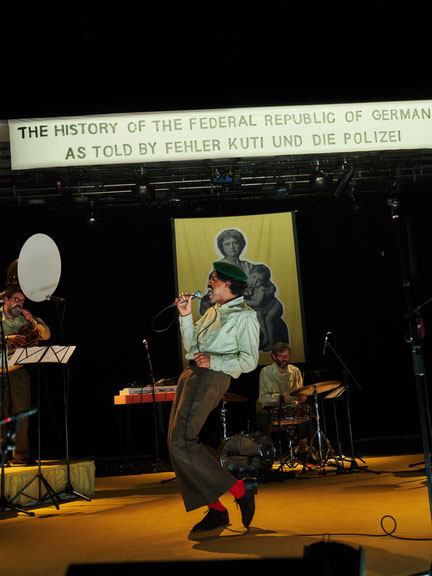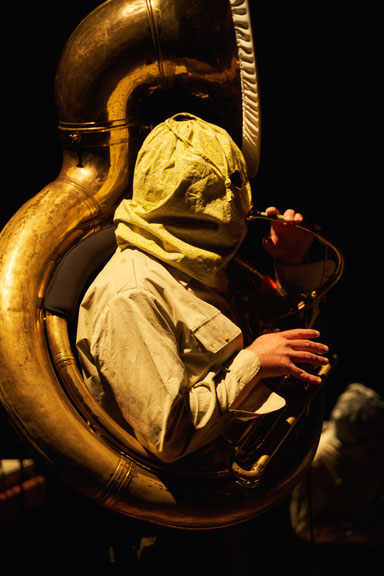When I was born in Germany in 1985 I was a foreigner, in 2005 I became a fellow citizen with a migrant background, then turned post-migrant in 2010, Black in 2012, now I guess I am BIPoC. Like many others, I undergo a wide variety of cultural/institutional and police interpellations and examinations.
Discourses migrate. They move with those that bear them from port to port, into new regions and contexts, along aviation, shipping and submarine glass cable routes. Their concepts are taken up, abbreviated, revised and re-read. They are urgently needed, not heard, expanded or discarded. The texts of those discourses are read, translated, scanned, uploaded or downloaded as PDFs and shared on WhatsApp. The experts are hyped, invited to big cities, to medium-sized cities, to large cultural institutions, to galleries, to universities. They run projects, make their way through institutions or fall into oblivion. They perform “their” critique. They represent “their” discourse. They become the subject of their discourse.
Some time ago I met a German journalist who was reluctant to identify as Black. He felt he was too clever to have new identities imposed on him again and again through discourse. He could not step back behind his Foucault reading, he explained to me. In my field journal, I called him “the reluctant Black intellectual”. I envied his disobedience. He is now doing valuable decolonial work on the canon of German-language philosophy. Today, I think he is probably that Black German journalist he never wanted to be. It is as if, in the face of the horrors of our time, his interest has shifted from a preoccupation with power (Foucault) to an engagement with violence (Fanon).
Black people greet each other on the street in Europe, without knowing each other. A Black friend of mine, who grew up with his white German mother, thinks that the greeting symbolizes solidarity with the fate of the other Black person. It expresses: I feel your pain. Another Black friend who came to Germany as an asylum seeker thinks that this kind of greeting is an expression of hypocritical concern because it obscures material differences. For example, what do Black students have in common with a Black asylum seeker with temporary leave to remain?
Black people greeting one another in the street is often read as a cultural Afrodiasporic acknowledgment. I understand it more as a reiteration in quotation marks of the primal racist scene described by Frantz Fanon in Black Skin, White Masks (1952): a white child points to a Black man and says, “Look mama, a Negro; I’m scared.”
Referencing Pierre Macherey, we recognize that being-Black emerges through the child’s imperial gaze. Fanon’s figure of interpellation is visual. Black skin is visible and obvious to all. It is not surprising that we actively unlearn this street ritual as our social advancement progresses. The horror of the ease with which one can be interpellated out of invisibility by a mere glance runs too deep. The existential fear of the nigger moment runs deep.
For Frantz Fanon as a ground-breaking anti-colonial thinker, the colonial situation revealed the true nature of the modern state: in the absence of any promise of freedom and representation, the colonised subject experienced its unfiltered brute force and coercion. The European worker is confused, but the colonised subject sees clearly. What, then, is the relationship between the utterly unlimited violence of the historical colonial situation and a European homeland and present? What is the historical, i.e., evolved, relationship between colony and homeland?
Composer Julius Eastman articulated it for the USA in 1980 in the following terms: “Without field niggers, you wouldn’t really have such a great and grand economy that we have. So that is what I call the first and great nigger, field niggers. And what I mean by niggers is that thing which is fundamental, that person or thing that attains a ‘basicness’, a ‘fundamentalness’ [...]”.
I shall never forget attending an American Literary Studies conference in Munich in 2009. Fascinated, I watched German professors of American Studies revel in Obama as a symbol of progressive promise and present Captain Ahab’s ship ‘Pequod’ as a “third space”, while their African American colleagues remained politely silent and, at the buffet, judged Timothy Geithner’s appointment as Treasury Secretary as a neoliberal betrayal of Obama. Discourses are situated practices and the first Black president had a different meaning for denazified white Germans than for progressive Black Americans.
When asked in 2019 about her life’s dreams, Angela Merkel recounted that as a young woman in the GDR she had dreamt of driving through the Rocky Mountains in a car listening to Bruce Springsteen. After retiring, Peter Struck – “Our security is defended not only, but also in the Hindu Kush” – fulfilled his dream of riding along Route 66 on a Harley Davidson. America is a promise. For me and many other People of Colour in Germany, American Studies was tantamount to what the Rockies were to Merkel and Route 66 to Struck. Feminism, Latinx, Black America, Film Studies. Because Fatima El-Tayeb’s Schwarze Deutsche (Black Germans) was unavailable, because Rainer E. Lotz’s Black People: Entertainers of African descent in Europe and Germany was too obscure, bell hooks, Eric Lott, and others became pillars of my thinking. When I wanted to know more about the history of blackface and minstrel shows, when I wanted to understand why the police were checking me out at Sendlinger-Tor-Platz time after time, when I wanted to think about being Black not only as a form of discrimination, in short: whenever I wanted to make progress with my academic or personal questions, I sought out the American Studies Library as the order of modernity.
Blind adoption of American anti-racist discourses contributes to our association of racism in the first instance with Black bodies. We take Eastman’s “field niggers” as the foundation of our own European order. And yes, the tragic music of Moor Mother et al. is exquisitely suited to fetishizing Black Existentialism. It’s harder with shisha bars and gyms in Duisburg and Offenbach. But this Afro-American-centrism of discourses, this narrowing of racism to the colonial situation blinds us to the racist exploitation on our own doorstep. In view of the immense Black Lives Matter mobilization in response to George Floyd’s murder and the comparatively meagre societal reaction to the Hanau attacks, the question arises: Why does our society not show the same empathy and solidarity towards its own fellow citizens with Kurdish, Turkish, Bulgarian, Bosnian or Afghan backgrounds or towards Roma and Sinti? How limited are our discourses when we cannot even talk about the racist exploitation of the people who repair our cars, deliver our packages or pick our asparagus?
Our postcolonial or decolonial discourses certainly make sense – not, however, as beliefs detached from time and space, but as attempts to grasp specific historical and geographical situations through concepts and terms. Perhaps there is no fundamental essence of the modern state that is revealed to us in the colonial situation. Perhaps there is simply this gap between brute force in the colony and the productivity of power at home. And in specific constellations, one world breaks through into the other. Perhaps though this dualism is also unproductive. Perhaps there are many modernities. And maybe they are similar. And maybe, amidst all this unclear complexity, we need to rethink our assumptions and lines of argument. Rethink publicly. Because: I might be wrong.
Preprint from the volume AFTER EUROPE – Beiträge zur dekolonialen Kritik, edited by Julian Warner, to be published by Verbrecher Verlag, Berlin, April 2021.
Translated by Helen Ferguson

